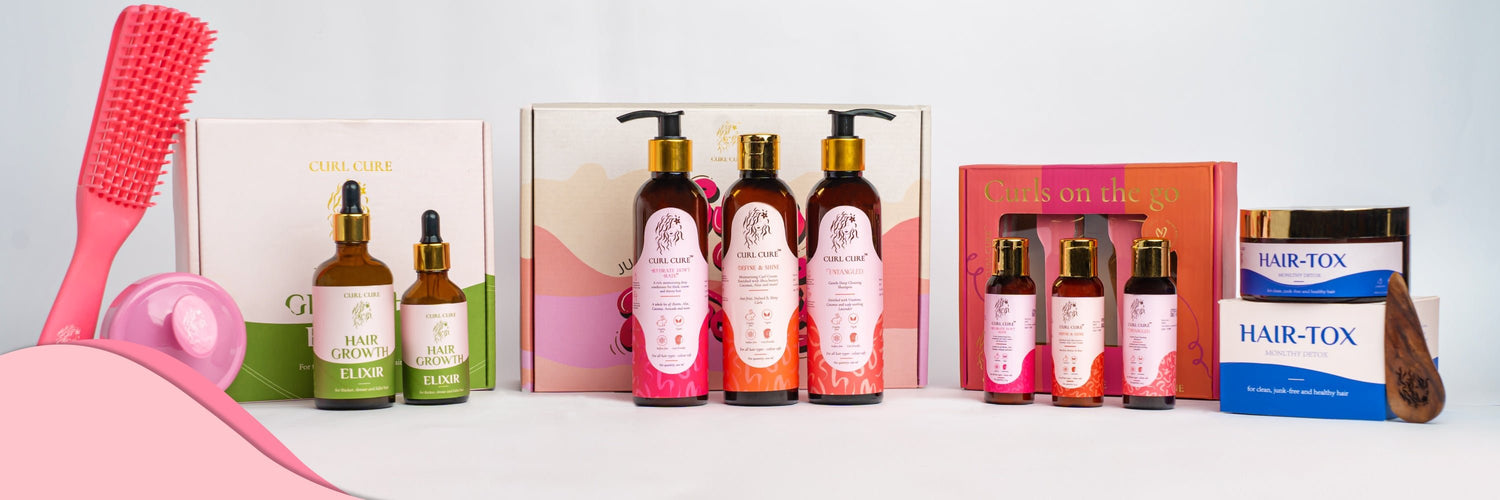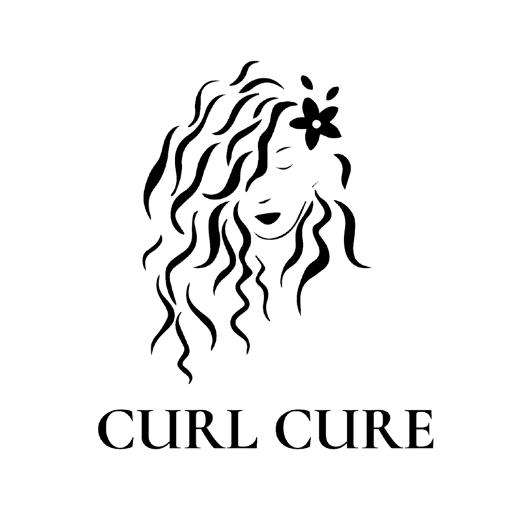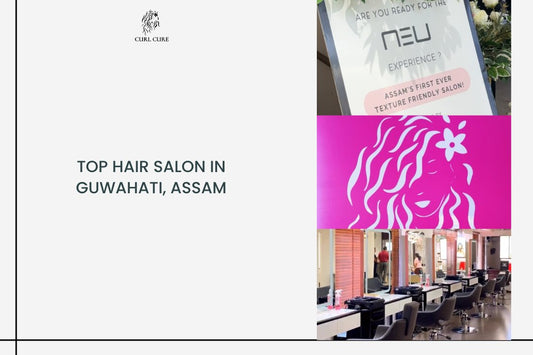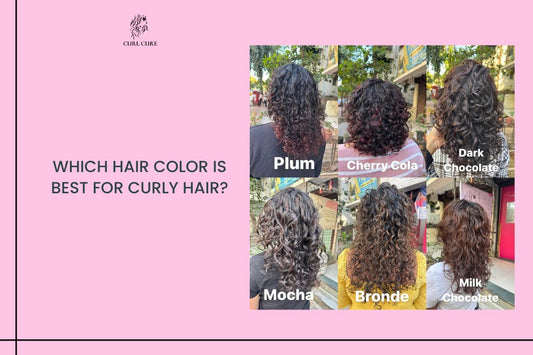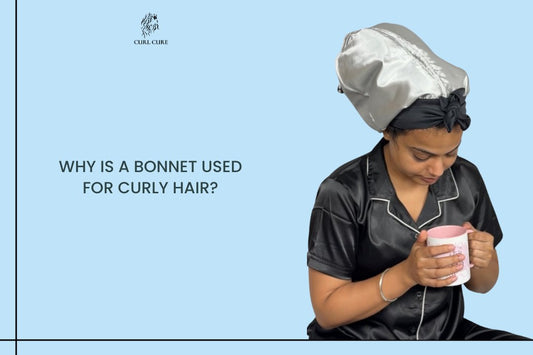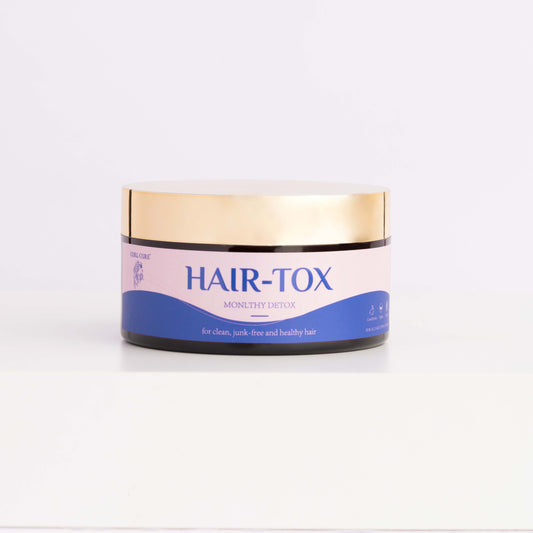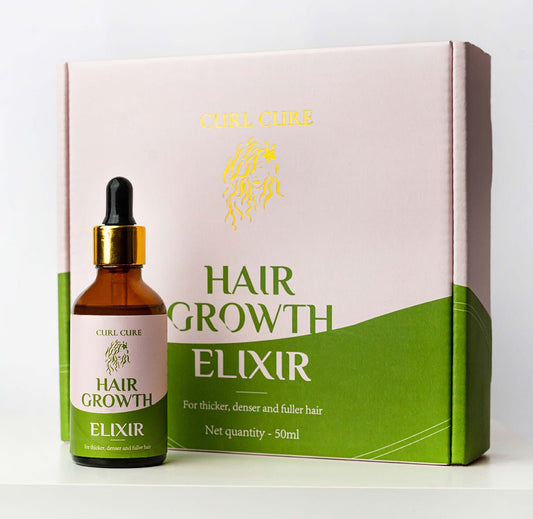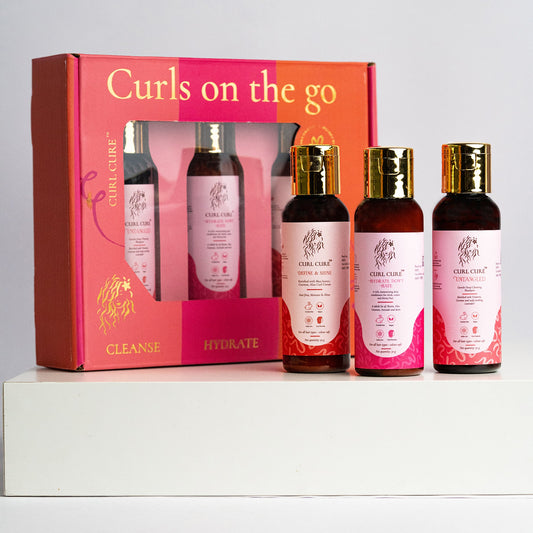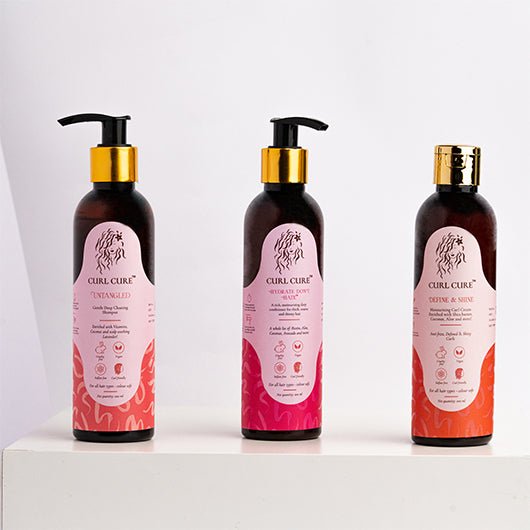Introduction
Are you tired of dealing with the discomfort of a dry scalp? You're not alone. Many people suffer from this common condition, which can lead to itching, flaking, and even hair loss. But fear not! In this comprehensive guide, we'll explore the best solutions for dry scalp care, from effective treatments and shampoos to home remedies and expert tips. Say goodbye to the itchiness and hello to a healthier scalp.
Table of Contents
Sr# |
Headings |
|---|---|
| 1 | Understanding Dry Scalp and Its Causes |
| 2 | Dry Scalp vs. Dandruff: What's the Difference? |
| 3 | Best Shampoos for Dry Scalp |
| 4 | Effective Dry Scalp Treatments |
| 5 | Home Remedies for Dry Scalp |
| 6 | How to Prevent Dry Scalp |
| 7 | The Role of Diet in Scalp Health |
| 8 | Debunking Myths About Dry Scalp |
| 9 | FAQs: Your Common Dry Scalp Questions Answered |
| 10 | Conclusion: Embrace a Healthier Scalp |
1. Understanding Dry Scalp and Its Causes
Dry scalp is a condition characterized by the lack of moisture on the scalp, which can result from various factors. Common causes include harsh weather conditions, excessive use of hot water, and certain hair products that strip away natural oils. To tackle dry scalp effectively, it's crucial to understand its root causes.
2. Dry Scalp vs. Dandruff: What's the Difference?
It's easy to confuse dry scalp with dandruff due to similar symptoms like itching and flaking. However, they have distinct causes and require different treatments. We'll break down these differences to help you identify your specific issue accurately.
3. Best Shampoos for Dry Scalp
Finding the right shampoo can make all the difference in alleviating dry scalp woes. We'll dive into the top shampoo designed specifically for dry scalp, highlighting its key ingredients and benefits. Say goodbye to that itchy feeling after your shower!
4. Effective Dry Scalp Treatments
Sometimes, shampoos alone may not be enough. Effective treatments can provide much-needed relief. From scalp massages to specialized serums, we'll explore various ways to combat dry scalp effectively:
-
Scalp Massages: Gentle massages with natural oils like coconut or olive oil can improve blood circulation in the scalp, promoting better moisture absorption and relief from dryness.
-
Hot Oil Treatments: Applying warmed oils to the scalp and leaving them on for some time can deeply hydrate and nourish the scalp, reducing flakiness and itching.
-
Hydrating Hair Masks: Specialized hair masks designed for dry scalps often contain ingredients like shea butter or aloe vera, which provide intense hydration and soothe irritation.
-
Anti-Fungal Treatments: If your dry scalp is due to a fungal infection, using medicated treatments with ingredients like ketoconazole can effectively combat the underlying cause.
-
Salicylic Acid Products: Shampoos or solutions containing salicylic acid can help remove dead skin cells, unclog hair follicles, and reduce the appearance of flakes.
-
Hyaluronic Acid Serums: These serums are excellent for attracting and retaining moisture in the scalp, creating a well-hydrated environment.
-
Avoiding Heat Styling: Excessive use of heat styling tools can worsen dry scalp. Give your scalp a break and opt for heat-free styling methods when possible.
-
Scalp Exfoliation: Gently exfoliating the scalp with a soft brush or a scrub can help remove dead skin cells, allowing for better absorption of treatments.
-
Balanced Diet: A diet rich in vitamins and minerals, particularly those like biotin and zinc, can contribute to overall scalp health.
-
Consulting a Dermatologist: If dry scalp persists despite home treatments, seeking advice from a dermatologist is essential. They can diagnose any underlying conditions and recommend specific medical treatments.
These treatments, when used appropriately and in combination, can offer comprehensive relief from dry scalp, restoring comfort and promoting a healthier scalp environment.
5. Home Remedies for Dry Scalp
If you prefer natural solutions, we've got you covered. Learn about easily accessible home remedies that can hydrate your scalp, such as coconut oil, tea tree oil, and aloe vera. These DIY treatments can be just as effective as store-bought products:
-
Coconut Oil: Often referred to as a "miracle oil," coconut oil is a natural moisturizer packed with fatty acids that can deeply hydrate the scalp. Simply warm up a small amount of coconut oil, apply it to your scalp, and leave it in for an hour or overnight before washing it out with a gentle shampoo.
-
Tea Tree Oil: Renowned for its antimicrobial properties, tea tree oil can combat the underlying causes of dry scalp, such as fungal infections. Mix a few drops of tea tree oil with a carrier oil (like coconut or jojoba) and massage it into your scalp. Leave it on for about 30 minutes before washing.
-
Aloe Vera Gel: Aloe vera is a natural soother, and its gel can work wonders for an itchy, dry scalp. Apply pure aloe vera gel directly to your scalp, leave it on for around 30 minutes, and then rinse thoroughly.
-
Apple Cider Vinegar: This kitchen staple can help balance the pH of your scalp, reducing itchiness and flakiness. Dilute apple cider vinegar with water in a 1:1 ratio, use it as a final rinse after shampooing, and make sure to rinse it out thoroughly.
-
Olive Oil: Much like coconut oil, olive oil is rich in fatty acids and antioxidants. Warm up a small amount of olive oil, apply it to your scalp, and leave it on for an hour or overnight. Rinse it out with a mild shampoo.
-
Yogurt and Honey: This soothing combination can provide relief from dryness and itchiness. Mix equal parts of plain yogurt and honey, apply it to your scalp, and leave it for about 20-30 minutes before rinsing.
-
Banana and Honey Mask: Blend a ripe banana with honey to create a nourishing mask. Apply it to your scalp and hair, leave it on for 30 minutes, and then wash it out with shampoo.
-
Avocado Mask: Avocado is rich in healthy fats and vitamins that can moisturize the scalp. Mash a ripe avocado and apply it to your scalp for 20-30 minutes before rinsing.
-
Egg Yolk: Egg yolks are packed with proteins and nutrients that can strengthen hair and hydrate the scalp. Mix an egg yolk with a bit of water and apply it to your scalp for 20-30 minutes before washing it out.
6. How to Prevent Dry Scalp
Prevention is key when it comes to maintaining a healthy scalp. We'll provide practical tips and advice on how to avoid dry scalp in the first place. From proper hair care routines to dietary choices, we've got you covered:
-
Gentle Hair Washing: Avoid over-washing your hair, as excessive shampooing can strip your scalp of its natural oils. Aim to wash your hair 2-3 times a week, or as needed.
-
Use Lukewarm Water: When you do shampoo, opt for lukewarm water instead of hot water, as hot water can contribute to scalp dryness.
-
Choose a Mild Shampoo: Use a gentle, sulfate-free shampoo that is suitable for your hair type. Harsh chemicals in some shampoos can irritate the scalp.
-
Condition Regularly: Use a conditioner designed for your hair type and apply it mainly to the ends of your hair. Over-conditioning the scalp can lead to greasiness.
-
Limit Heat Styling: Excessive use of heat styling tools like hairdryers, curling irons, and straighteners can dry out your scalp. Use them sparingly and always apply a heat protectant.
-
Protect Your Scalp from the Sun: Just as you protect your skin from the sun, don't forget about your scalp. Wear a hat or use hair products with UV protection when exposed to sunlight for extended periods.
-
Stay Hydrated: Proper hydration is essential for overall skin and scalp health. Drink plenty of water daily to keep your body and scalp adequately moisturized.
-
Humidify Indoor Air: During dry seasons or in homes with low humidity, consider using a humidifier to add moisture to the air. This can prevent your scalp from drying out.
-
Balanced Diet: A diet rich in essential fatty acids, vitamins (especially B-complex vitamins), and minerals like zinc and selenium can promote scalp health. Incorporate foods like fish, nuts, seeds, and leafy greens into your meals.
-
Avoid Stress: High-stress levels can exacerbate scalp issues. Practice stress-relief techniques such as meditation, yoga, or deep breathing exercises to maintain a healthy scalp.
-
Avoid Tight Hairstyles: Styles that pull on the hair, like tight ponytails or braids, can strain the scalp and potentially lead to dryness or even hair loss. Opt for looser hairstyles when possible.
-
Regular Scalp Massages: Gentle scalp massages can stimulate blood flow to the scalp and promote natural oil production, helping to keep the scalp moisturized.
-
Protect Against Harsh Weather: In extreme weather conditions, such as cold, windy winters, or hot, dry summers, protect your scalp by wearing appropriate headgear like a scarf or hat.
-
Know Your Hair Type: Different hair types may require different care routines. Understand your hair type and choose products and routines that suit it best.
7. The Role of Diet in Scalp Health
Believe it or not, your diet plays a significant role in the health of your scalp. We'll discuss the foods that can promote scalp health and those that may contribute to dryness. A balanced diet could be the missing piece in your dry scalp puzzle.
Foods That Promote Scalp Health
-
Omega-3 Fatty Acids: Omega-3 fatty acids found in fatty fish like salmon, mackerel, and flaxseeds help nourish the scalp. They support healthy hair follicles and reduce inflammation, promoting a moisturized scalp.
-
Biotin: Biotin, often referred to as vitamin H, is essential for hair and scalp health. It's found in foods like eggs, nuts, and whole grains. Biotin deficiency can lead to dry, flaky skin, including the scalp.
-
Vitamin E: This antioxidant-rich vitamin helps improve blood circulation to the scalp, ensuring better nutrient delivery. Foods like almonds, spinach, and sunflower seeds are excellent sources of vitamin E.
-
Zinc: Zinc is crucial for maintaining the health of hair follicles and the scalp. Include foods like oysters, beef, and pumpkin seeds in your diet to ensure an adequate zinc intake.
-
Iron: Iron deficiency can lead to hair loss and a dry scalp. Incorporate iron-rich foods such as lean meats, beans, and fortified cereals into your meals.
-
Vitamin A: Vitamin A promotes a healthy scalp by supporting the production of sebum, the natural oil that keeps the scalp moisturized. Foods like sweet potatoes, carrots, and spinach are rich in vitamin A.
Foods That May Contribute to Dryness
-
Excessive Sugar: A diet high in sugary foods and beverages can lead to inflammation, which can affect the scalp's health. Reducing sugar intake can help maintain scalp balance.
-
Processed Foods: Highly processed foods are often devoid of essential nutrients and can contribute to poor overall health, including the condition of your scalp. Opt for whole, unprocessed foods instead.
-
Fried Foods: Foods high in unhealthy fats and fried items can lead to poor circulation, which may impact scalp health. Limit your consumption of fried foods.
-
Caffeine and Alcohol: Both caffeine and alcohol can dehydrate the body, potentially leading to dryness, including a dry scalp. Ensure you're staying well-hydrated when consuming these beverages.
-
Dairy Products: For some individuals, dairy products may trigger skin conditions like eczema, which can affect the scalp. If you suspect dairy is a culprit, consider reducing your intake.
-
Spicy Foods: Spicy foods can sometimes cause excessive sweating, which may exacerbate scalp issues. Moderation is key if you enjoy spicy meals.
8. Debunking Myths About Dry Scalp
There are many myths and misconceptions surrounding dry scalp. We'll separate fact from fiction, so you have a clear understanding of this condition. Don't let false information lead you astray in your quest for a healthier scalp:
Myth 1: Dry Scalp and Dandruff Are the Same Thing
Fact: While both dry scalp and dandruff can result in flaking and itching, they are distinct conditions. Dry scalp is caused by a lack of moisture on the scalp's outermost layer, leading to dryness and flakiness. Dandruff, on the other hand, is typically caused by an overgrowth of a yeast-like fungus called Malassezia, resulting in oily, yellowish flakes. Understanding the difference is crucial for effective treatment.
Myth 2: Dry Scalp Is Always Caused by Dry Weather
Fact: While dry weather can exacerbate the symptoms of dry scalp, it's not the sole cause. Dry scalp can result from various factors, including over-washing, using harsh hair products, or underlying medical conditions like psoriasis or eczema. Therefore, it can occur at any time of the year.
Myth 3: Frequent Shampooing Prevents Dry Scalp
Fact: Excessive shampooing can actually strip the scalp of its natural oils, potentially leading to dryness. Finding a balance in your hair care routine is key. You don't need to shampoo daily; 2-3 times a week is usually sufficient for most people.
Myth 4: Scratching Helps Relieve Dry Scalp
Fact: While it might provide momentary relief from itching, excessive scratching can damage the scalp, leading to further dryness and potential infections. It's better to address the root cause of the dryness rather than relying on scratching.
Myth 5: Dry Scalp Is Contagious
Fact: Dry scalp is not contagious. It's a common scalp condition that can happen to anyone, and it's not caused by bacteria or viruses. You cannot "catch" dry scalp from someone else.
Myth 6: Applying Hair Products Directly to the Scalp Prevents Dryness
Fact: Some hair products, especially those containing harsh chemicals or alcohols, can exacerbate dry scalp when applied directly. It's better to focus these products on your hair lengths and tips and avoid the scalp if it's prone to dryness.
Myth 7: Dry Scalp Is Permanent
Fact: Dry scalp is a treatable condition. With the right care and products, you can alleviate dryness and restore scalp health. If your dry scalp is due to an underlying medical condition, consulting a dermatologist can help you find an effective treatment plan.
Myth 8: Natural Oils Alone Cure Dry Scalp
Fact: While natural oils like coconut or tea tree oil can provide relief from dryness, they may not be a standalone cure for everyone. Effective dry scalp management often involves a combination of factors, including proper hygiene, diet, and choosing the right hair care products.
9. FAQs: Your Common Dry Scalp Questions Answered
Q1: What exactly is dry scalp?
Dry scalp is a condition characterized by a lack of moisture on the scalp, leading to itching and flaking. It's different from dandruff, which is caused by excess oil.
Q2: How can I tell if I have dry scalp or dandruff?
You can differentiate them by examining the flakes. Dry scalp flakes are smaller and whiter, while dandruff flakes are larger and yellowish.
Q3: Can dry scalp lead to hair loss?
Yes, severe dry scalp can cause hair loss if left untreated. It's essential to address it promptly to prevent this issue.
Q4: Are natural remedies as effective as commercial products for treating dry scalp?
Yes, natural remedies like coconut oil and aloe vera can be highly effective in treating dry scalp, often without the harsh chemicals found in some commercial products.
Q5: How often should I wash my hair if I have a dry scalp?
Washing your hair 2-3 times a week is generally sufficient for individuals with dry scalp. Overwashing can exacerbate the problem.
Conclusion: Embrace a Healthier Scalp
In conclusion, managing and overcoming dry scalp issues is entirely achievable with the right knowledge and products. By gaining a deeper understanding of the causes, selecting suitable treatments, and adopting a healthy hair care routine, you can bid farewell to the nuisances of dry scalp. Say hello to a scalp that not only feels great but looks healthier too. Your hair will undoubtedly thank you for it!
As an additional suggestion for maintaining optimal scalp health, consider incorporating the use of Hairtox treatments once every 15 days and applying a hair growth serum every night. These practices can enhance blood circulation to the scalp, further promoting a nourished and revitalized scalp environment.
With these insights and tips, you're well on your way to enjoying a comfortable, moisturized scalp and the confidence that comes with it.
